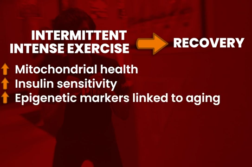COLUMBUS, Ohio. (Ivanhoe Newswire)— Cancer patients undergoing chemotherapy may sometimes experience acid reflux, a burning sensation that starts in the stomach, and moves up into the chest and esophagus. Now, a new study suggests that medicine taken to relieve acid reflux could cause other side effects.
Proton pump inhibitors, like over-the-counter drugs, help reduce acid production in the stomach. But a new study by researchers at Ohio State University finds the chronic use of PPIs could be causing memory problems. The researchers studied breast cancer patients in three clinical trials. They noted their prescription and over the counter medication, then reported any concentration or memory problems. Researchers say the memory problems were between 20 and 29 percent more severe than those reported by patients who didn’t use PPIs.
Annelise Madison, a PhD candidate in clinical psychology at Ohio State University explained, “The original clinical trials that showed that these were safe drugs to consume were very short term in nature. They were typically less than six months. I think it warrants some caution in using proton pump inhibitors, especially among a population that’s already at risk for gastrointestinal issues and potential cognitive decline.”
Madison says it’s not clear whether the memory loss in cancer patients is temporary or would resolve itself at the end of treatment. It’s an area she says needs additional study.
A study published earlier this year looking at acid reflux drugs in the general population suggests an association between chronic use of PPIs and a higher risk of dementia in both men and women over the age of 75. Chronic use is described as at least one three-month prescription in an 18-month period.
Contributors to this news report include: Cyndy McGrath, Executive & Field Producer; Kirk Manson, Videographer; Roque Correa, Editor.
To receive a free weekly e-mail on Medical Breakthroughs from Ivanhoe, sign up at: http://www.ivanhoe.com/ftk
MEDICAL BREAKTHROUGHS
RESEARCH SUMMARY
TOPIC: ACID REFLUX DRUGS (PPIs) AND MEMORY PROBLEMS
REPORT: MB #4794
BACKGROUND: The flow of stomach acid back into your esophagus is a common condition called acid reflux. Approximately 15 million Americans suffer from it daily. When the valve connecting your stomach to your esophagus does not fully close, this is when reflux happens. Contrary to common belief, spicy foods aren’t always the reason for reflux. Triggers can include rich, greasy foods; alcohol; coffee; or even certain meats, fruits, or grains. Even unrelated reasons to your diet choices can be linked to acid reflux. For example, if you’re pregnant, you’re more likely to experience reflux as increased hormones and added pressure on your stomach can cause that valve to loosen. Also, people who are older and who smoke are at a higher risk.
(Source: https://www.healthgrades.com/right-care/acid-reflux-and-gerd/5-fast-facts-about-acid-reflux)
HEARTBURN DRUGS AND MEMORY LOSS: Studies show that people who use heartburn drugs for two or more years are at increased risk of low vitamin B12 levels, which could lead to dementia and other serious symptoms. These drugs suppress stomach acids and are known as proton pump inhibitors (PPI’s) and histamine 2 receptor antagonists (H2RA’s). The findings are important because as many as four in 10 Americans have symptoms of acid reflux, and many depend on such drugs, putting them at risk of vitamin B12 deficiency. The problem may be higher in seniors, who typically have a harder time absorbing the vitamin even without taking the drugs. The higher the dose of acid-suppressing drugs that someone takes, the greater the risk of vitamin B12 deficiency. The link to B12 deficiency decreased after people stopped taking the drugs.
(Source: https://www.alzinfo.org/articles/how-heartburn-drugs-may-lead-to-memory-problems/)
NEW HEARTBURN DRUG?: A drug that binds bile acids in the stomach and can reduce the severity of heartburn symptoms in patients with treatment-resistant gastroesophageal reflux disease (GERD) when combined with a proton pump inhibitor (PPI), is being investigated. Michael Vaezi, MD, PhD, MSc, director of the Center for Swallowing and Esophageal Disorders at Vanderbilt University Medical Center, said, “The reality is many of our patients continue to struggle with frequent heartburn and regurgitation despite taking their PPIs.” The drug, IW-3718, combines an established drug that binds bile acids in the stomach with a technology that controls the release of drugs in the gastrointestinal tract. Heartburn symptoms were significantly reduced in the group receiving the highest dose, 1,500-milligrams twice daily, compared to the placebo group. Regurgitation symptoms also decreased, and the drug was well-tolerated.
(Source: https://www.technologynetworks.com/drug-discovery/news/new-heartburn-drug-on-the-horizon-331382)
FOR MORE INFORMATION ON THIS REPORT, PLEASE CONTACT:
AMY COLGAN
If this story or any other Ivanhoe story has impacted your life or prompted you or someone you know to seek or change treatments, please let us know by contacting Marjorie Bekaert Thomas at mthomas@ivanhoe.com




